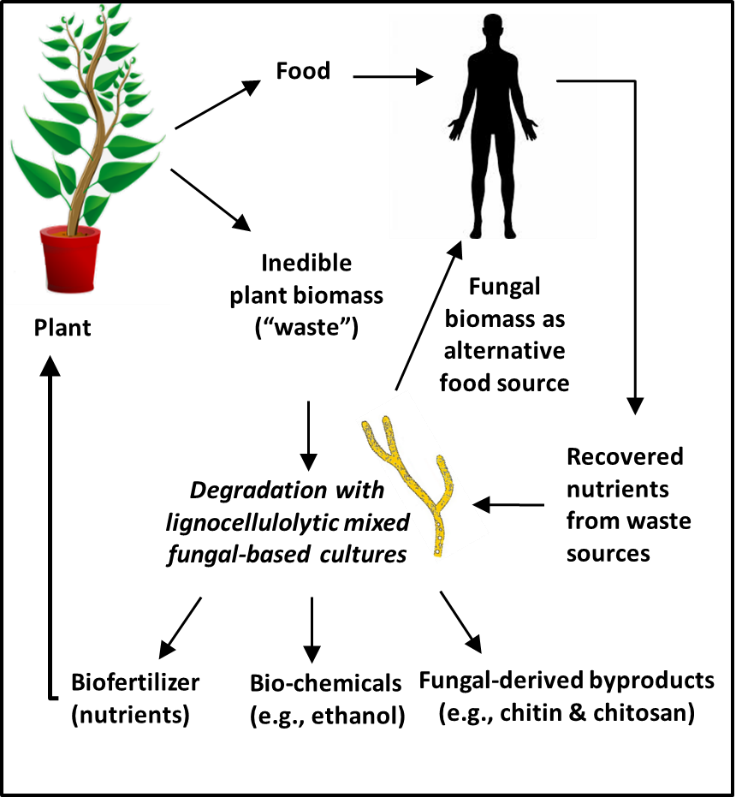Optimizing the bioconversion and recycling of inedible plant waste using mixed microbial cultures for long-term human habitation in space
Spaceflight-compatible Recycling of non-edible Biomass
Plant cultivation in bioregenerative life support systems (BLSSs) will require a continuous supply of nutrients and will result in the production of inedible plant wastes that still contain valuable nutrients and carbon that could be reused, recycled, or upcycled for other purposes. NASA recognizes the need for alternatives to improve processes that can convert plant waste (lignocellulosic biomass, LCB), into value-added materials and recycle resources to achieve a higher degree of self-sustainability in BLSSs. This project aims to use mixed cultures of LCB-degrading organisms for LCB bioconversion; specifically, we aim to use mixed fungal-bacterial and fungal-fungal biofilms to transform LCB to value-added products (e.g., nutrients, ethanol, fungal-derived bioplastics), and even fungal biomass that could be used as an alternative food source. The completion of this study will provide important knowledge and reactor designs for converting LCB into value-added products and recover & recycle resources from LCB to close the plant/food production loop in BLSSs, while decreasing the costs and dependency on resupplying resources from Earth.

Contact Info
|
|
